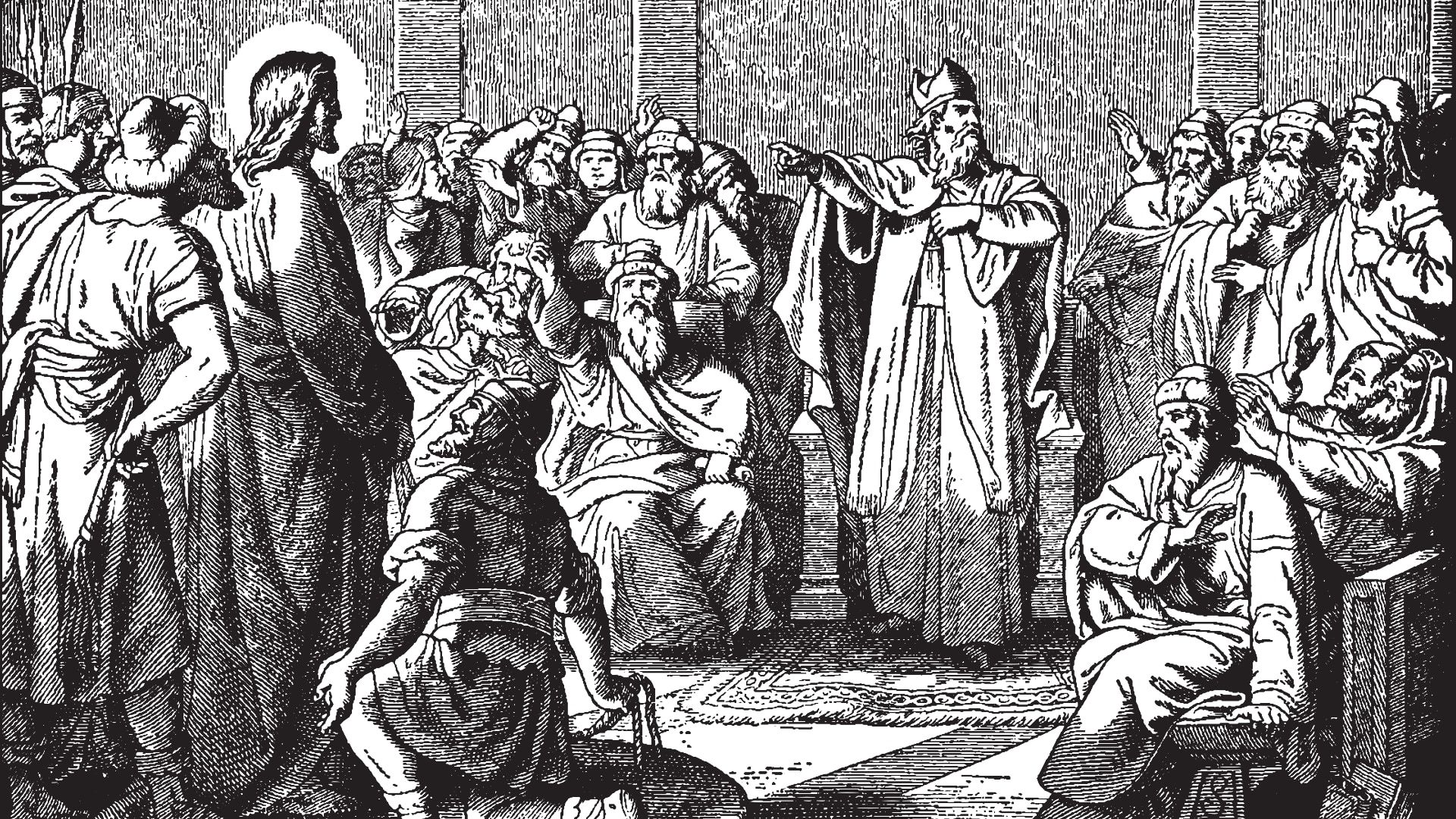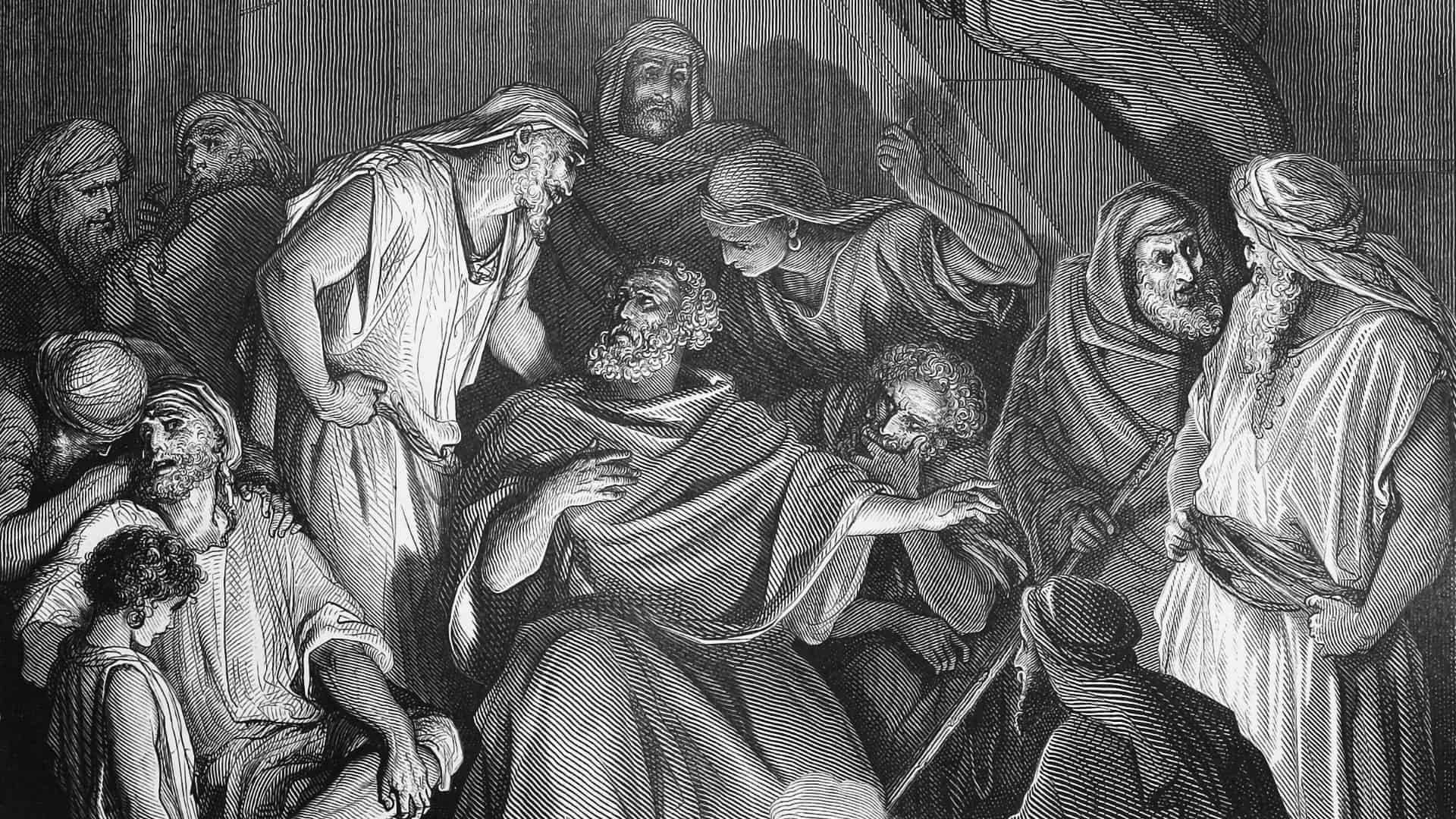The Call and Cost of Ministry (Mark 6:7-30)

We’ve been looking together at the Gospel of Mark, which is the earliest account of Jesus’ life and ministry. Today we come to a transition in the Gospel of Mark.
When Jesus began his ministry, he called twelve people. Chapter 3 says, “He appointed twelve that they might be with him and that he might send them out to preach and to have authority to drive out demons” (Mark 3:14-15). From the very beginning, Jesus created a community of followers who would be with him and do the things that he does. Up until now in the Gospel, they’ve been with Jesus, and even that hasn’t been too impressive. They’re still trying to understand who Jesus is and what he’s all about. They’ve been with Jesus, but they haven’t done anything yet. In the passage that we just read, that all changes.
This morning’s passage tells us two things we need to know. First, we learn about our calling to ministry. Secondly, we learn the cost of ministry.
Let’s first look about our calling to ministry.
Verse 7 says, “Calling the Twelve to him, he began to send them out two by two and gave them authority over evil spirits.”
As we’ve just said, up until now, Jesus has been preaching and healing and casting out demons, and the Twelve have been watching. They’ve now spent quite a bit of time with Jesus. He hasn’t always been easy to understand. They still haven’t come to really grasp who this is, but they know that God is up to something in Jesus. Three of the twelve have even seen Jesus raise a little girl from the dead.
Now Jesus turns to them and commissions them to do exactly what he has been doing. Everything that he has been doing, he calls them to do. Anyone who has ever delegated an important task to someone who just may not be ready understands what is happening here. It’s one thing for God in human flesh to go around preaching, healing, and casting out demons. But now God is going to entrust this job to a bunch of nobodies who don’t even get it yet? And yet that’s exactly what Jesus does in this passage.
Now in a sense, as we’re going to see, not everything here applies to us today. Jesus gave these commands to the Twelve and not to us. And yet there are implications for us. God is on a mission, and he invites us to join him. As Jesus is going to say later to his disciples, “As the Father has sent me, I am sending you” (John 20:21). Or as the apostle Paul writes, “We are God’s co-workers” (1 Corinthians 3:9). We get to join God in what he is doing. We have been invited to join God on his mission.
This means that God is on a mission in west Toronto – in the townhouses at Clement and Martingrove, in WillowRidge, in Rexdale, at the Tim Horton’s at Westway and Martingrove, at the Residence, wherever we are. And he invites us as his people to join him in what he is doing. Jesus calls us to carry on his ministry, to do what he did as he travelled around Galilee. This should blow us away. God is on mission all around us, and he invites us to join him in what he is doing.
We learn three things about our mission from this passage.
First, we learn that our mission is comprehensive. Did you notice verse 7, and then verses 12 and 13?
Calling the Twelve to him, he began to send them out two by two and gave them authority over evil spirits….They went out and preached that people should repent. They drove out many demons and anointed many sick people with oil and healed them. (Mark 6:7, 12-13)
You’ll notice here that their mission is a comprehensive one. It involves preaching and calling people to repentance, we read. The disciples go out and preach. They have a message that they proclaim, and they are calling people to respond. But that’s not all that they do. They also drive out demons and the heal sick people. They point people to God’s Kingdom, in which God deals not only with sin, but with all the effects of sin as well.
This teaches us that our mission has to be a comprehensive one. Some churches are very good at preaching. They are excellent at telling people about forgiveness and reconciliation with God. They’re good at calling people to repent. But quite often these churches aren’t good at caring for the other needs that people have.
Some churches are very good at caring for sick people and those who are struggling with problems. They are good at social action and justice. But quite often these churches are not as good at proclaiming the gospel.
In this passage we see that we are called to proclaim the good news of the Kingdom and to care for people in every area of life. We are called to take the whole gospel to the whole person to the whole world. The gospel is comprehensive and touches every area of life. We’re called to point to a gospel in which God not only forgives sins but will also undo all the effects of sin as well. The gospel is good news to the poor and the sick and the imprisoned and the suffering. We’re called to preach the good news and to demonstrate God’s care in every area of life. Our mission is comprehensive.
Second, we learn that our mission is urgent. In this passage, Jesus tells the Twelve that they don’t really have time to waste packing for their trips. These are emergency instructions for a swift and dangerous mission. There’s no time to waste. They can’t get weighed down with extra stuff that will hold them back. Israel is at a crossroads.
God’s mission is urgent. It’s not something that can wait until next month or next year. Over 200,000 people live within five kilometers of where we sit right now. 20,000 of those people are going to move in the next year. 150 people are going to die. Many of those people have never heard about the good news of the gospel: that the Kingdom of God is near, and that God has come in the person of Jesus to bring people back to himself and to set all things right. God is on mission in this community, and he’s commissioned us to join him. But there’s an urgency. It’s not something that can wait. It means traveling light because the mission can’t be delayed.
Finally, we see that our mission involves dependency. When Jesus tells them to go out with no food or money, he’s telling them that they are going to be dependent on others – and ultimately on God – to provide for them. When Jesus tells them to enter a place and depend on the hospitality of others, it means that they aren’t always going to know where they are going to sleep the next night. Jesus even hints that it isn’t going to go well for them. There are going to be villages that do not receive them. There are maybe going to be nights that they don’t have a place to sleep. They are going to have to learn dependence on others – and ultimately they are going to have to learn dependence on God.
One of the subtle and deadly dangers that we face is self-reliance. Jack Miller was a pastor in Philadelphia. He went through some tough experiences in his life that were so bad that he quit his ministry. Miller looked back on those times and believes that God was teaching him to stop being so self-reliant. He came to realize that when we are self-reliant – when we depend on ourselves, our technology, and our skills – it shows that we aren’t dependent on Christ. He wrote to a missionary and said:
What we fail to see is that reliance on people, their capabilities, their keeping their promises is a demonic faith, a cooperation in heart with the powers of darkness. We join the enemy, Satan, when we fail to rely on the promises of God to move on our behalf.
Spurgeon, a famous preacher in Britain, believed that this was one of the greatest dangers facing his church. When the church was doing quite well, he turned to them one Sunday and said:
I tremble for the church of which I am the pastor. I never trembled for it when we were few, when we were earnest in prayer, and devout in supplication, when it was a thing of contempt to go into “that miserable Baptist Chapel in Park Street,” when we were despised and maligned and slandered. I never trembled for them then…But I tremble for it now, now that God hath enlarged our borders…O churches! take heed lest ye trust in yourselves; take heed lest ye say, “We are a respectable body,” “We are a mighty number,” “We are a potent people;” take heed lest ye begin to glory in your own strength; for when that is done, “Ichabod” shall be written on your walls and your glory shall depart from you.
The minute we lose our dependency and think we have what’s needed on our own, we’re in big trouble. Dependency is essential to mission. When a church is just starting out, they are dependent. They have to be. But churches get established, and by the a church gets to our stage it’s easy to lose our sense of dependence. We’re about to be tested in this area in the next few weeks. God is asking us to take on some things that are beyond what many of us think we can handle. When God calls us to mission, he calls us to dependence on him. God invites us to join him on mission.
Before we finish this morning, there’s one more thing this passage teaches us. We’ve learned about our call to ministry.
Let’s now look at the cost of ministry.
Mark describes the sending of the Twelve in verses 7 to 13. Then he switches the topic to the popular reaction to Jesus and the execution of John the Baptist in verses 14 to 29. Then in verse 30 he returns to the original topic. Verse 30 says, “The apostles gathered around Jesus and reported to him all they had done and taught.”
Question: Why does Mark do this? Why does Mark get us going on a subject, then change the subject, and then continue his original subject all over again? Mark does this all the time. Is Mark easily distracted? Does he have ADD? Of course, the answer is no. Mark does this deliberately. They even have a name for this: a Markan sandwich. Mark takes two seemingly unrelated stories and ties them together, telling us that we have to learn something from the combination.
What could Mark possibly be telling us from these two stories? John the Baptist is the forerunner of Jesus, and here he becomes the forerunner of Jesus and all who follow him. Mark here shows us the cost of ministry. Preaching repentance can be deadly. It cost John his life. Later on it cost Jesus his life. His mission is a dangerous one. What happened to John in his mission will happen to Jesus in his mission, and to the disciples in theirs.
Next Sunday is the International Day of Prayer for the Persecuted Church. Today around the world over 200 million are suffering for their faith in Jesus Christ. Paul said that this is part of what it means to follow Jesus. “For it has been granted to you on behalf of Christ not only to believe on him, but also to suffer for him” (Philippians 1:29). When the apostles were persecuted, they rejoiced “because they had been counted worthy of suffering disgrace for the Name” (Acts 5:41).
Jesus calls us to take the whole gospel to the whole person even at the cost of our lives. This is the call and this is the cost of mission.
This morning I have the privilege of standing before you and saying that God is inviting every person here to join him on mission. Every person here has been called. If you look at yourself and feel rather ordinary, then you’re in good company. That’s exactly what each person in the Twelve was: an ordinary person.
God turns to ordinary people like us an invites us to join him in what he is doing. I know there are people here who are hearing God’s call to join him on mission. It involves announcing what God has done through Jesus, and calling them to repent and trust in him. And it involves caring for people in a holistic way.
If this morning you feel inadequate or that you lack the resources, then that’s a good sign. You’re well positioned to realize how dependent you are on God. I have the sense that the problem with a lot of us – maybe the problem with our church – is that we haven’t done anything in a long time that requires us to be dependent on God. We live in safe worlds, and we never fail because we never try anything. God is calling some of us this morning to move into his dangerous mission in which it’s clear we don’t have what it takes. He’s calling our church to leave the safety and to join him in mission. It’s urgent. There’s really nothing more important.
Is it dangerous? Well, it got Jesus and John the Baptist killed. Not just them either. Next Sunday is the International Day of Prayer for the Persecuted Church. Over 200 million Christians today are experiencing persecution because of their faith. Is the mission dangerous? It could get you killed.
But it’s the only mission that lasts. Herod killed John the Baptist. Herod’s kingdom is long gone, but John’s message is still being heard around the world. They killed Jesus, but Jesus’ death led to our life. God’s kingdom advances despite murderous evil. Nobody wastes his life who gives his life for God’s kingdom.
Let’s pray.
God has been speaking to some of you this morning through this passage. I know he’s speaking to us as a church to leave our places of safety and move into his risky and dangerous mission.
It’s not a safe mission. And it’s not one that we can handle on our own. It requires dependence on him. If you aren’t in the place where you feel your sense of dependence, it probably means you’re not on mission yet.
God calls ordinary people like us to join him. How will we respond?
Thank you, Father, that Jesus came to announce the good news that the kingdom is near. Thank you that he left heaven to enter a dangerous world, and that he gave his life so that we may be saved.
Thank you that he invites us to follow him. May we serve as Jesus served. Move us to the place where we have to depend on you. May we even be willing to risk our lives to join you on mission. Move among us now we pray. We ask in Jesus’ name, Amen.





